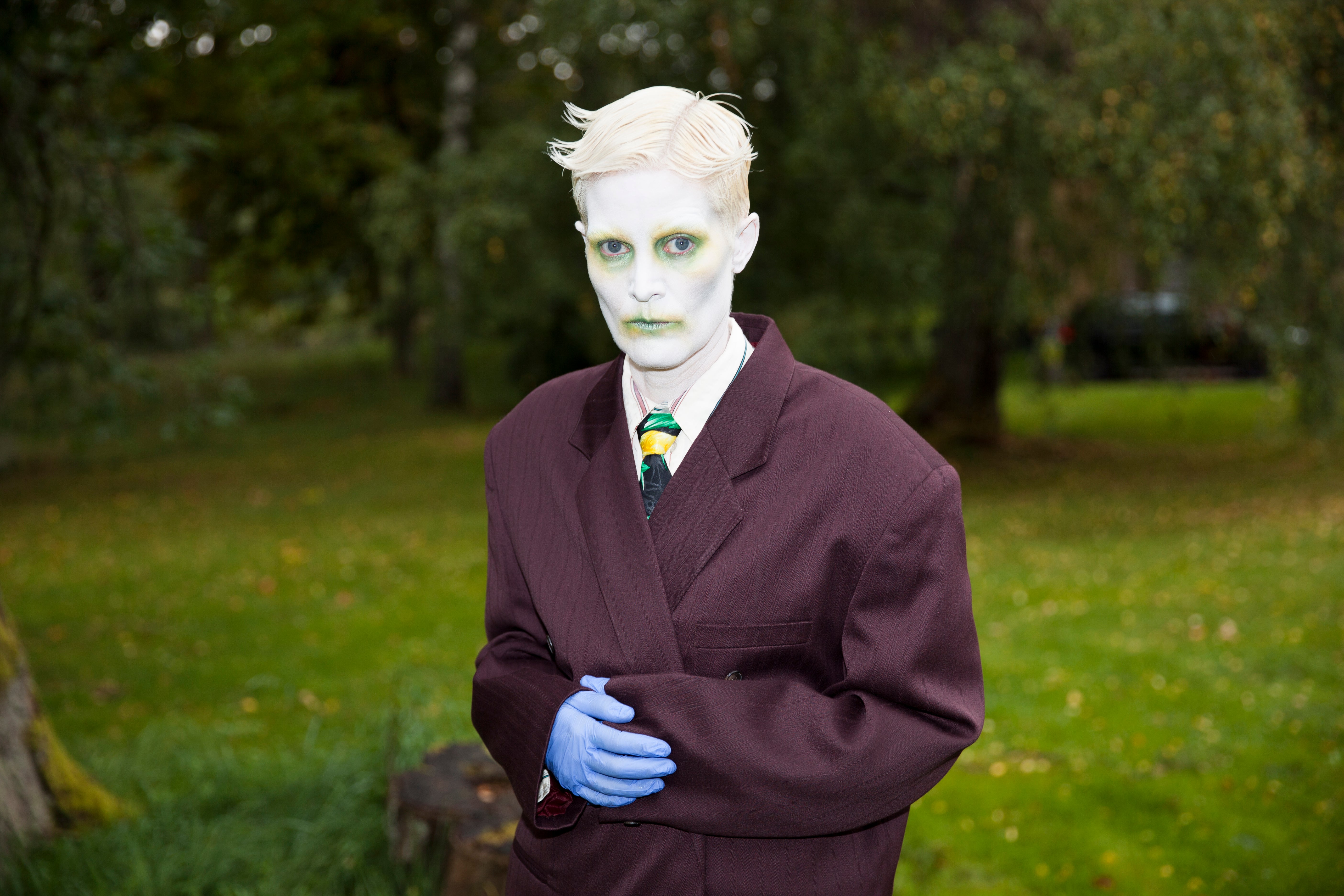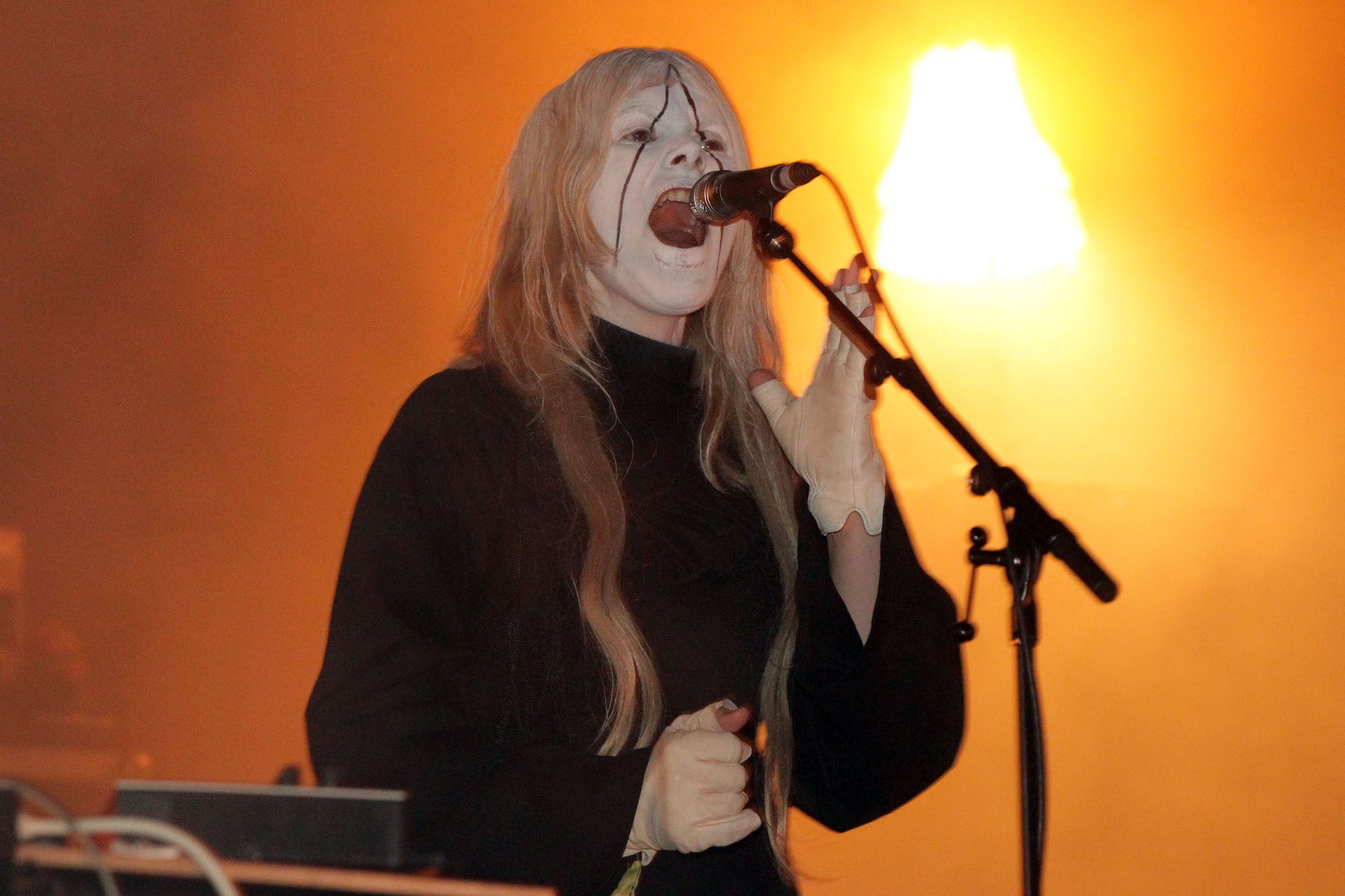Experimental pop star Fever Ray’s Karin Dreijer: ‘Sweden has never been a safe place for queer people’
Karin Dreijer has been pushing boundaries ever since they released their first record with their brother as the eerie electronic house duo the Knife. As they prepare to play the End of the Road festival as Fever Ray, they talk to Annabel Nugent about regressive attitudes towards families in Sweden, coming out as non-binary, and the threat to artists posed by the rise of the far-right Sweden Democrats


Your support helps us to tell the story
From reproductive rights to climate change to Big Tech, The Independent is on the ground when the story is developing. Whether it's investigating the financials of Elon Musk's pro-Trump PAC or producing our latest documentary, 'The A Word', which shines a light on the American women fighting for reproductive rights, we know how important it is to parse out the facts from the messaging.
At such a critical moment in US history, we need reporters on the ground. Your donation allows us to keep sending journalists to speak to both sides of the story.
The Independent is trusted by Americans across the entire political spectrum. And unlike many other quality news outlets, we choose not to lock Americans out of our reporting and analysis with paywalls. We believe quality journalism should be available to everyone, paid for by those who can afford it.
Your support makes all the difference.It takes time for the Swedish musician Karin Dreijer to turn into the gender queer electronica artist Fever Ray. Physically it is a long process that involves garish makeup, a cartoonishly large suit, and sometimes a wig but more often a bald cap. Psychologically, the transformation takes even longer. “If it’s been a while [since I’ve performed], I’ll try to put on the whole costume way ahead of time and just sit there,” the 49-year-old Dreijer says. “I need to get to know it again.”
Dreijer, who is non-binary, has always been fond of masks. Two decades ago, when they first began releasing eerie electronic music (“haunted house” if you will) as the Knife with their brother, Olof, the siblings were rarely photographed without a disguise of some sort. The pair never attended the Swedish Grammis, though they won several times. And when Dreijer did accept an award for their solo work as Fever Ray in 2010, they did so wearing a frightening fleshy mask that looked like Miss Piggy left in a sauna.
Privacy may have been the initial aim, but costumes serve a different purpose these days. “I don’t think about it in that sense any more. It’s more a way to make the performance true or real, a way for me to try to tell stories more clearly,” says Dreijer over Zoom – sans mask.
They are home in Stockholm taking a breather from touring before flying to the UK for the End of the Road festival next week. Breaks are necessary: Fever Ray gigs tend to provide a tremendous spectacle. They demand a lot of Dreijer who, on stage, brings their music to palpable, pounding life typically accompanied by an astounding light show. “Best show I’ve ever seen,” is not an uncommon comment to see on YouTube clips of their sets.
It’s somewhat rare to interview Dreijer, for the simple reason that it’s rare for them to put out music. In 15 years, they have released just three albums – each as critically acclaimed and long-awaited as the last; on Pitchfork, they have an enviable average rating of 8.3. As Fever Ray, Dreijer makes experimental art pop that sheds the steely club beats of the Knife, while retaining all the playful menace and humour.
The most recent of these albums arrived last year with Radical Romantics, a title that harks back to the Knife’s brief existence as the dance-poppers du jour in the early Noughties, thanks to the release of their loved-up sugar-rush hit “Heartbeats” – immortalised in commercials, cafe playlists, and Jose Gonzalez’s popular acoustic cover. (Nothing they’ve made since, together or solo, has come close to being so pop-oriented or commercially successful.)

Radical Romantics follows in the footsteps of 2017’s Plunge, a libidinous thrust of an album that came to a climax with Dreijer shouting: “I want to run my fingers up your pussy!” mid-record. Here, love is more abstract and alien. “I just wanna be touched/ I just wanna shiver/ Can I trust you?” Dreijer hesitates against the alarm-sounding bassline of “Shiver”. Elsewhere on the album “Even It Out” imagines them exacting revenge on a teenager “who bullied my kid in high school” with a pickaxe. That’s love, too.
Where the Knife would find inspiration in politics and critical theory (their last show together in 2014 was titled “Post-Colonial Gender Politics Come First, Gender Comes Second”), Fever Ray offers Dreijer a chance to explore more introspective territory. “I’m more interested in feelings: how to feel and to be able to feel things,” they say. “But then I think that is also very political.” Take their 2009 solo debut, for example, written when Dreijer was a new mother in a heterosexual marriage.
Those tracks felt suspended in the thick, dank air of domestic cabin fever. Dreijer sang of dishwasher tablets and kitchen sinks, charging against the confines that motherhood comes with. I laugh, telling Dreijer that listening to the album when I was 16 made me rethink having children. “And what do you think now?” Things feel better now, I suggest. Mothers are less boxed in than they were a decade or so ago.
Enjoy unlimited access to 100 million ad-free songs and podcasts with Amazon Music
Sign up now for a 4 month free trial (3 months for non-Prime members)
Enjoy unlimited access to 100 million ad-free songs and podcasts with Amazon Music
Sign up now for a 4 month free trial (3 months for non-Prime members)

Dreijer is not so sure. “At least in Sweden, the politics around families have become worse,” they say. “There is a new wave of young women who want to stay home and not have an education or find a job because they want to be housewives. I think it’s super-important for society to have collective care of children because it is a lot of work to bring up kids. The idea of family in Sweden is very binary, very tight to just single parenting, but families where there are three or more parents, I think that’s great.” It takes a village, is Dreijer’s point. “I’m happy that I’m not having children today. I’m happy that I’ve already done it.”
It was when making music as the Knife that Dreijer first started to push at the borders of gender. Abandoning the sweetness of their early hits, the siblings veered into stranger territory. So heavily processed were their vocals that they seemed to emit from some place unknown without gender or name. “I realised that if I say something with a very female voice, it’s read in a totally different way than if I say it with a dark, male-coded voice,” Dreijer says now. “Music was a free space to play around in a way that I didn’t know I needed at the time.”
Dreijer started using they/them pronouns – or hem in Swedish – in 2018. “I haven’t thought much about it,” they say of their decision. “I don’t remember when I switched. It was just a natural thing that happened.” It’s been a journey that began with making music. “When we started, I didn’t have the words to understand what it is that we were doing, but now I can see it,” Dreijer says. “I think it’s a lot about feeling free, which a lot of people are struggling with right now.’”
Dreijer is aware of that fact as they raise their own two kids, who are 21 and 17. “When they were really small, I didn’t have the knowledge about trans people or non-binary identities, but it’s something we’ve talked about a lot in the last 10 years,” they say. “So I hope I’m as open as possible.” It’s more than Dreijer can say for Sweden, which as a country, they say, “is never really safe for queer people”.
Their recent track “What They Call Us” is about this looming sense of danger. It is written, Dreijer says, from “a very queer perspective” – but also an artist’s perspective. “These right-wing parties in Sweden want not only to take away rights for trans people but also cut down [funding] for culture,” they say. “In the end, it will make people more stupid and let them be able to run their politics ever more so.” In the country’s 2022 elections, voters ousted the Social Democrats, the party responsible for building the Swedish welfare state – and for the first time ever, the radical right-wing Sweden Democrats gained real political power, becoming the second biggest party in parliament.

Growing up in Gothenburg, Dreijer found their way into music through the indie guitar scene – and was stubborn in their pursuit of it as a career. “My parents couldn’t really say anything because I moved out when I was 18,” they say. “And in Sweden, university is free. You don’t need their blessing or permission to do anything in that sense because you don’t need their money, which is sometimes the same thing.”
The guitar scene, though, wasn’t for them. “It was very male dominated and very straight,” Dreijer says. “Labels run by dudes who signed their friends who were also dudes.” With their band at the time, Dreijer did end up releasing music on one such dude-run label. “But I had to compromise so much,” they say. In what way, Dreijer can’t exactly recall. They shake their head as if erasing a bad dream and laugh. “I’ve tried to forget,” Dreijer says finally. “But I’m very happy that I got away.” Hundreds of thousands of fans are very happy about that, too.
End of the Road festival takes place from 29 August to 1 September
Join our commenting forum
Join thought-provoking conversations, follow other Independent readers and see their replies
Comments